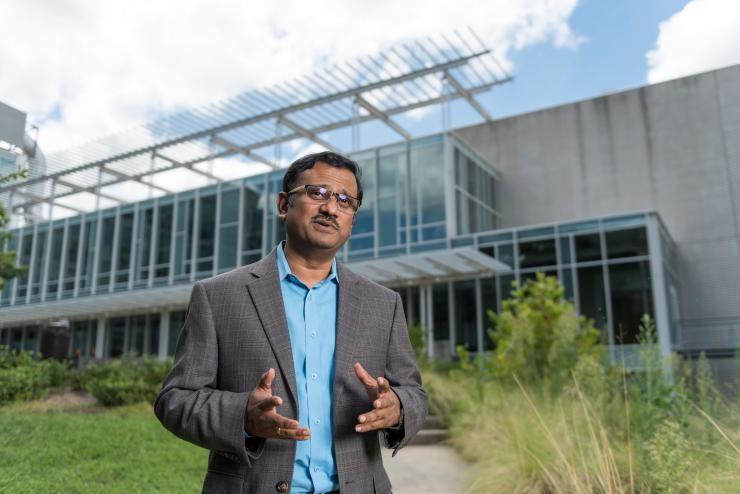Section Branding
Header Content
Researchers At Georgia Tech Receive NIH Funding For Coronavirus Vaccines
Primary Content
Researchers at Georgia Tech received funding from the National Institutes of Health to evaluate specific molecules that may help the development of a COVID-19 vaccine, according to school's news blog.
These molecules, known as adjuvants, may improve coronavirus vaccines' ability to stimulate the immune system and help protect the general population against the virus.
Biomedical engineering professor Krishnendu Roy said the adjuvants his team is studying are molecules often found in viruses and bacteria that efficiently stimulate the immune system.
"We are trying to understand how adjuvant combinations affect the vaccine response," Roy said. "We will look at how the immune system shifts and changes with the adjuvant combinations."
The grant to Georgia Tech is part of a program called Molecular Mechanisms of Combination Adjuvants. For the past four years, the agency has been supporting Roy's team in their studies to understand how adjuvants work. This additional funding will allow them to apply their research to potential coronavirus vaccines.
RELATED:
- Atlanta Couple From Diamond Princess Donates Blood For Coronavirus Vaccine, Cure
- Antiviral Drug Remdesivir Shows Promise Against COVID-19 In Trials
- 'It's An Honor' Says Local COVID-19 Vaccine Trial Participant
Adjuvants are used with some vaccines to help them create more durable protective immune responses in the person receiving the vaccine. The research team will screen a library of various adjuvant combinations to quickly identify those most useful in enhancing the coronavirus vaccines.
Roy said that his team's goal is to determine how to generate the most effective immune response against the COVID-19 virus.
"There are more than a hundred vaccine candidates being developed for the SARS-CoV-2 virus, which causes COVID-19, and it is likely that many will generate initial antibody responses," Roy said. "It remains to be seen how long those responses will last and whether they can generate appropriate immunological memory that protects against subsequent virus exposures in the long-term."
Roy and his team will be evaluating existing adjuvants in different combinations, along with potential proteins and RNA-based antigens. They want to develop novel combinations of current adjuvants, and others that are still in development to create an effective vaccine.
"There are multiple efforts that the NIH and others are funding to really accelerate the pace of the work to see how many different approaches we can come up with and to evaluate the differences," said Roy.
As with any research into potential coronavirus vaccines, the work for Roy's team is a high priority to create a safe and effective vaccine against the COVID-19 virus as soon as possible.
Secondary Content
Bottom Content


